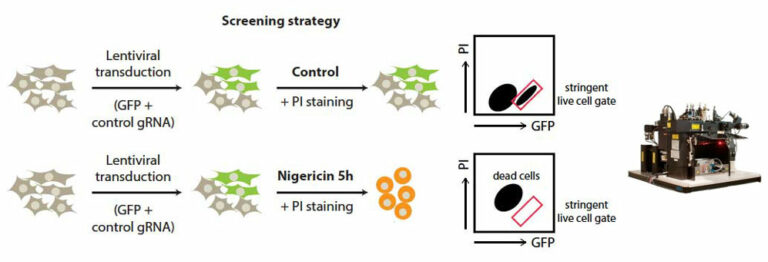How neurons regulate their excitability autonomously
Study by the University of Bonn elucidates important mechanism in the brain
Nerve cells can regulate their sensitivity to incoming signals autonomously. A new study led by the University of Bonn has now discovered a mechanism that does just that. The German Center for Neurodegenerative Diseases and the Max Planck Institute for Neurobiology of Behavior were involved in the work. The results have now been published in the journal Cell Reports.
Anyone who has ever sent a voice message with a cell phone knows how much the volume matters: Shouting into the microphone results in a distorted and unclear recording. But whispering is not a good idea either – then the result is too quiet and also difficult to understand. That is why sound engineers ensure the perfect sound at every concert and talk show: They regulate each microphone’s gain to match the input signal.
The neurons in the brain can also fine-tune their sensitivity, and even do so autonomously. A new study led by the University of Bonn and the University Hospital Bonn shows how they do this. For this purpose, the participants investigated nerve cell networks that also play a role in vision, hearing and touch. The stimulus first travels to the so-called thalamus, a structure deep in the center of the brain. From there, it is then conducted to the cerebral cortex, where it is further processed. […]
Participating Core Facilities: The authors acknowledge the support from the Microscopy and Virus Core Facilities.
Participating institutions and funding:
In addition to the University of Bonn and the University Hospital Bonn, the German Center for Neurodegenerative Diseases (DZNE), the Max Planck Institute for Behavioral Neurobiology – caesar and the University of Sidney were involved in the work. The study was funded by the German Research Foundation (DFG), the European Research Council (ERC) and the Bonfor Fellowship Program of the University Hospital Bonn.
Publication: P. Royero et. al: Circuit-selective cell-autonomous regulation of inhibition in pyramidal neurons by Ste20-like kinase; Cell Reports; DOI: 10.1016/j.celrep.2022.111757







